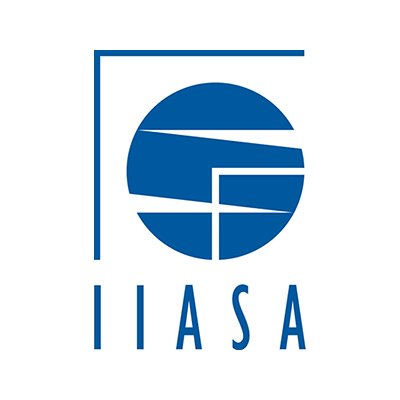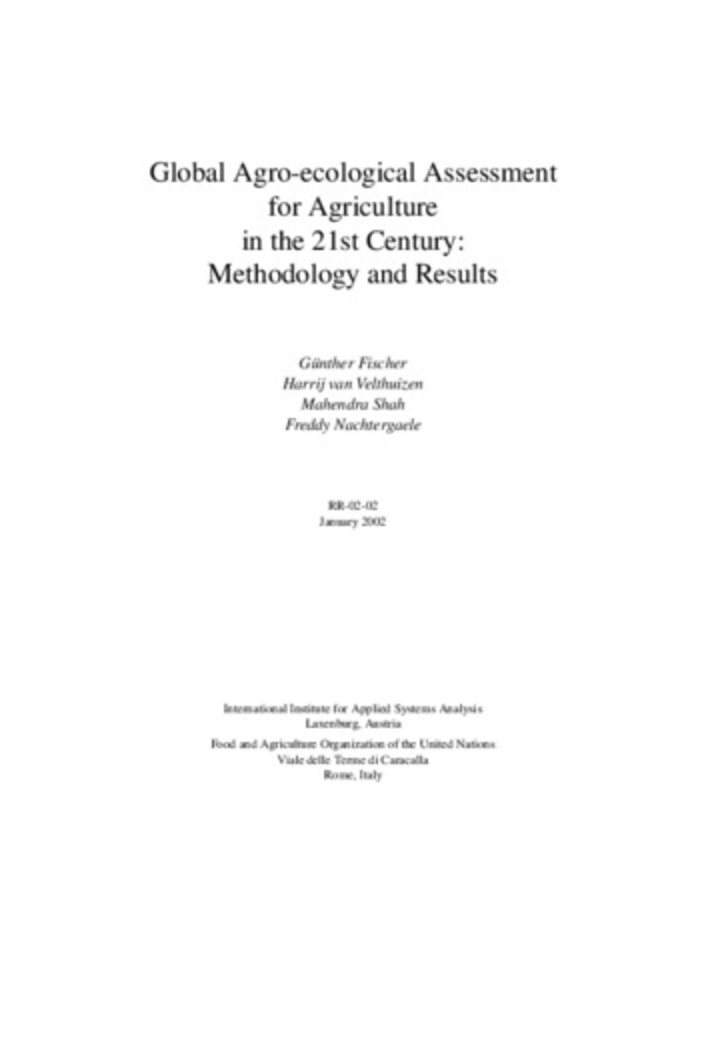Location
The International Institute for Applied Systems Analysis (IIASA) is an international scientific institute that conducts research into the critical issues of global environmental, economic, technological, and social change that we face in the twenty-first century.
Our findings provide valuable options to policymakers to shape the future of our changing world. IIASA is independent and funded by prestigious research funding agencies in Africa, the Americas, Asia, Europe, and Oceania.
Members:
Resources
Displaying 1 - 3 of 3Global Agro-ecological Assessment for Agriculture in the 21st Century: Methodology and Results
Over the past 20 years, the term "agro-ecological zones methodology," or AEZ, has become widely used. However, it has been associated with a wide range of different activities that are often related yet quite different in scope and objectives. FAO and IIASA differentiate the AEZ methodology in the following activities:
Land Use in North-East China in the 1930s and After.
Land use in much of North-East China in the 1930s has been reconstructed and compared with that of today. North-East China, which was once called Manchuria in Japan or elsewhere, was a place of invasion and colonization by Japan till the end of World War II. This region currently comprises of Liaoning, Jilin and Heilongjiang Province and Neimongol Autonomous Region (see Figure 1).
Zambia - Programme for Integrated Development and Adaptation to Climate Change in the Zambezi River Basin (PID
General
This intervention concerns the Programme for Integrated Development and Adaptation to Climate Change in the Zambezi River Basin (PIDACC Zambezi). It aims to strengthen regional cooperation in building the resilience of the Zambezi River Basin communities to climatic and economic shocks, through promoting inclusive, transformative investments, job-creation, and ecosystem-based solutions. The Programme approach is to bring interventions to build communities’ resilience to climate change and improve livelihoods, in selected (i) ZAMCOM Hotspots areas, and (ii) lower-level administrative decision-making units. It is exceptionally designed to strengthen the resilience of social and physical infrastructure, improve the adaptive capacities of communities as well as generate additional greenhouse gas (GHG) reduction benefits. The programme consists of four components and associated sub-components, namely: (i) Component 1 - Strengthening Integrated Natural Resources Management; ii) Component 2 - Building Communities’ Resilience to Climate Change; iii) Component 3 - Supporting Adaptive Capacity and Institutional Skills Development; iv) Component 4 - Programme Coordination and Management.
Objectives
PIDACC Zambezi’s development objective is to strengthen regional cooperation in building the resilience of the Zambezi River Basin communities to climatic and economic shocks, through promoting inclusive, transformative investments, job-creation, and ecosystem-based solutions. Specific objectives are to (i) strengthen the institutional capacities and mechanisms for coordination of Basin monitoring, planning, and management, (ii) increase demand-driven community-level feasible climate resilient infrastructure that would support livelihoods, (iii) develop and improve livelihoods, including job creation, by strengthening agribusiness through investments in water & sanitation, energy, human capital, and agriculture sectors, (iv) build capacity of communities with the view to avoid, reduce and reverse land degradation and effectively manage water resources in a sustainable manner, and (v) enhance institutional development and adaptive capacity in order to reduce vulnerabilities.
Target Groups
The Programme will directly benefit about 800,000 (60% women and 10% youth) with hotspot areas, and indirectly the whole population, by improving their access to water, climate smart agricultural technologies, and community level infrastructure for irrigation and markets, resulting in improved livelihoods. The associated benefits will accrue to inhabitants of the Basin through multi-sectoral utilization of shared water resources within the context of integrated land and water resources development and management, gender equality and social inclusion.




